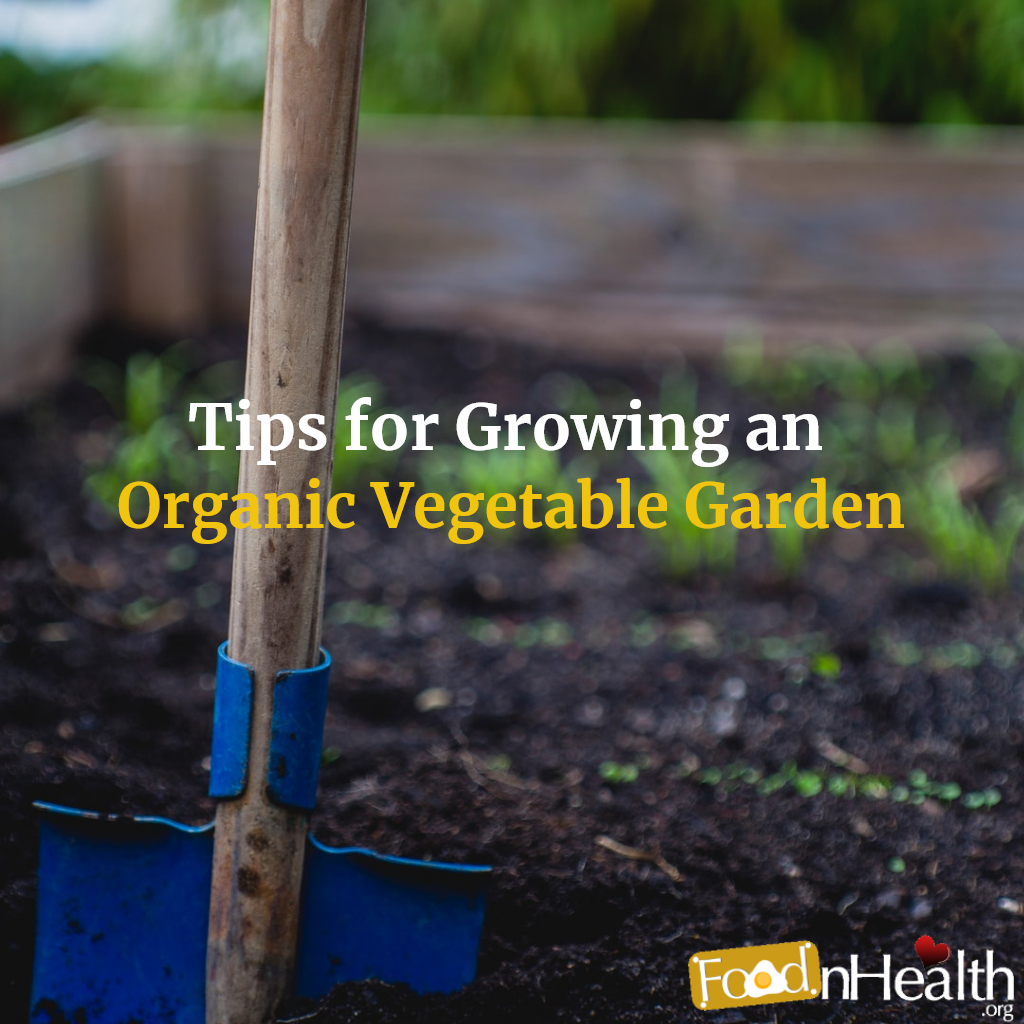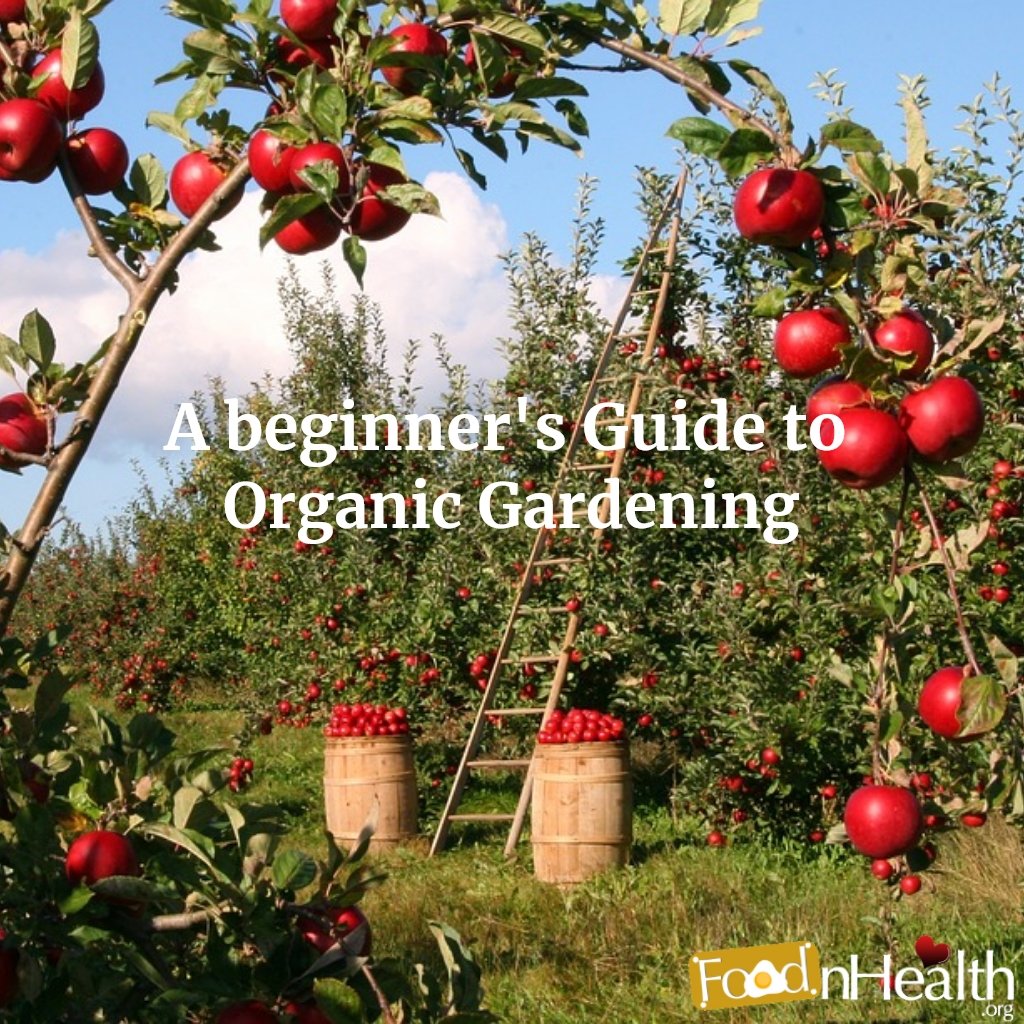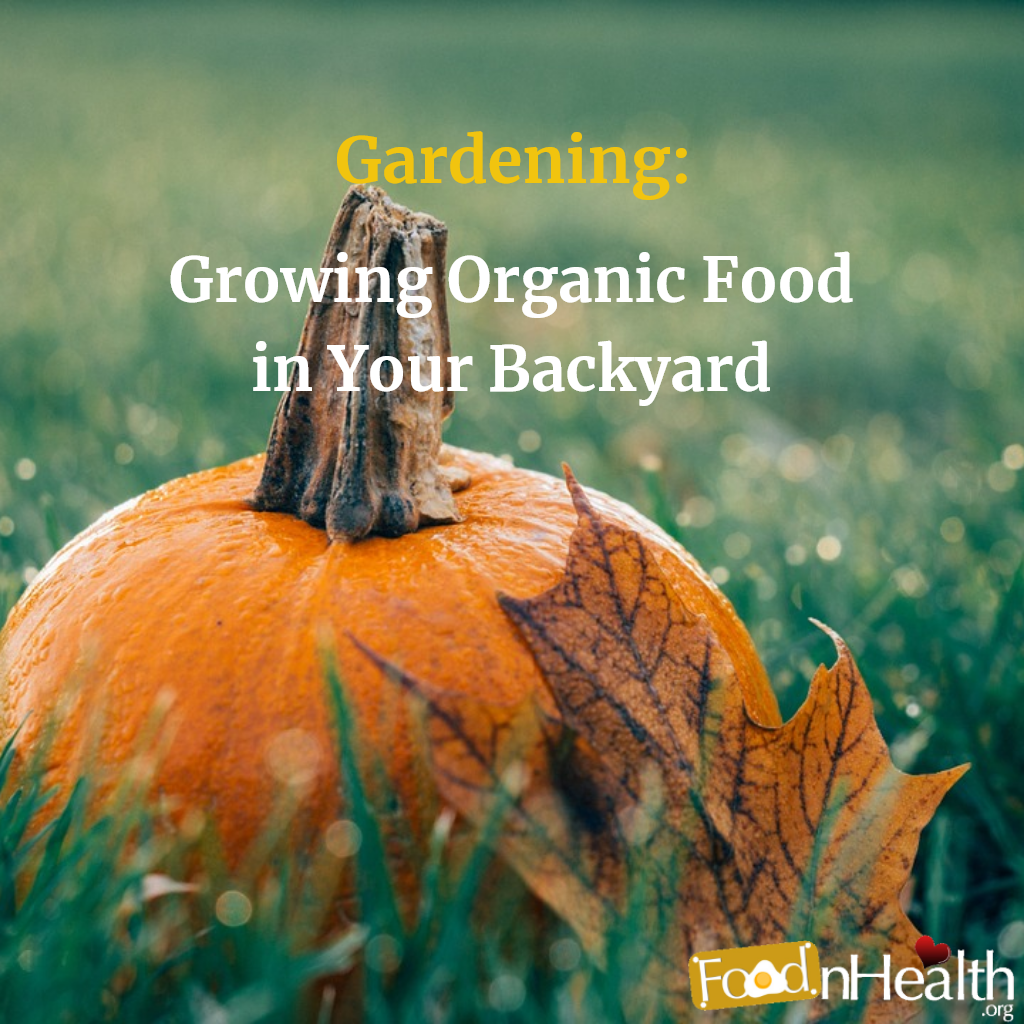More and more farmers are switching to organic gardening because they have seen the prices of organic food fetches in the marketplace. The main reason behind the recent hype in organic food is not the money but the wish of more and more people to eat healthy food. They want to buy produce off organic farmers that they know is free of any pesticides, herbicides, and hormones. The food industry governing bodies have recognized this wish of the consumers to eat healthily and they have set the standards high.

If you too are seeking to become an organic farmer, don’t worry, no one is forcing you to pot to the market. You can be a sustenance farmer that will grow vegetable and herbs to be used in your own household. This is perhaps the best part of organic farming, as the “farm” is actually a special plot of land inside your garden. It is integrated into your home so it presents the epitome of the bond of civilization and nature. Mastering the art of organic food gardening is no easy tasks but here are the 9 topmost tips that will help you stay on track to becoming a seasoned organic gardener.
Choosing the right seedlings
You cannot start an organic garden without the plants themselves. When you go shopping for seedlings, their color will play a decisive role in your choice. Choose seedlings that don’t have any yellow leaves because this might indicate that the plant is drying out or that it is infected. Furthermore, plants with droopy or wilting leaves should also be given a wide berth. If it’s possible, check the root system of the plant to confirm that it is white in color and well-developed. The seedling you take is expected to develop flowers, buds, and fruit in the future so if they have them during the shopping stage, then skip those particular plants.
Not stock but organic fertilizer
No garden would be possible without the use of some sort of fertilizer. It helps promote growth and yields larger crops. Sacks of the usual type of fertilizer are available even at the local supermarket but that’s not what you want. You need special organic garden fertilizer that is comprised of well-rotten manure from herbivores such as rabbits, cows, horses, sheep, chicken, etc.

Organic fertilizer is usually available for purchase at a garden and we must warn you, it does cost an extra dollar or two. You could be able to save money if you order online but frauds are not uncommon, so be on the lookout for fraudulent sellers. The most important period when the ground should be fertilized is the very beginning of organic gardening. Over time, the soil inside your garden will become rich enough in plant nutrients and minerals that you won’t need fertilizer anymore.
Crop rotation is a must
Most novice gardeners are discouraged by the fact that they have to rotate crops each season. However, crop rotation is gardening 1-on-1 can organic gardening is no different. Plants that are genetically related develop the same diseases so it is necessary to rotate them with other plant species. In fact, the two biggest families to be on the lookout for are the squash family, containing plants such as pumpkin and cucumber, and the tomato family, with tomatoes, potatoes, eggplants, and peppers as the most famous species. Avoid planting these families next to one another in order to limit the spread of disease. In addition, you will help the soil preserve the nutrients that would otherwise get depleted before the season ends.
Cleanliness is half the health
Every time you get dirty you hit the shower, right? If personal hygiene is important to you, there is no reason why it shouldn’t matter to plants as well. When a leaf falls to the ground it starts to rot and attract bacteria and small animals that have the potential to hurt the flora in your garden. Therefore, take a stroll through the garden and pick up the fallen leaves. This will both inhibit the spread of disease and beautify your garden. The leaves that were obviously torn of by strong wind you can return to the compost pile but the ones that are infected should go in the trash can, as far away from the organic garden as possible.
The importance of composting
An inherent part of organic gardening is composting on your own instead of buying ready-made compost at the DIY center. This costs money; money that you needn’t spend because you already have everything you need inside your household. If you are into recycling (and few eco-aware people aren’t), then you probably must hate it when you throw away food into the general trash bin. Well, if you create a compost pile than food will no longer go to waste (or it will, literally).

A compost pile takes up as little as a single square meter and it can be made from some old wooden board. You can use it to dump food leftover that is mixed with dirt and humus. Add a couple of worms to the equation and you get the perfect homemade compost pile to be used as fertilizer inside the organic garden. If animal excrement makes an excellent fertilizer, why shouldn’t compost generated from your household’s waste do too!
Preserving the natural balance
An organic garden is so much more than just growing pesticide-free food and eating healthy. It is your personal statement that you care about the environment so don’t neglect the whole ecosystem. Apart from verdant plant life, there are animals that live in your backyard and many of them can become your allies in the joint fight to preserve nature.
You can make a tree house to attract birds that will fill your garden with melodies twitter. Next to the house, you can place a bird feeder that will attract all sorts of birds. Another example of taking care of the fauna is the creation of a bee friendly garden that will feature colorful flowers and helpful herbs. After you are done with carpentry work, you will have created a real-life bee hotel that will become the hot spot for honey bees in the area.
Like we stated earlier, an organic garden is your gateway into nature. Bird boxes and beehives are a sure sign that you have been accepted by local wildlife. From that point on, you will be working alongside Mother Nature to create a balance and harmony that have been lost in so many other urban areas. You don’t have to be a tree-hugger in order to appreciate the healing power of nature!
Water, air, and sun
It might seem like an obvious thing to state but novice gardeners often forget the two most important factors that make their garden thrive. Enough sunlight and regular watering are the very core of gardening. This means that the organic garden should be located in a place that gets a lot of sun throughout the year. If your own garden doesn’t fit the bill, you might consider leasing or buying off nearby plots of land for this purpose.

Once you know that sun will shine strong on your seedlings, the other part of the magic formula is to water them regularly. Determine how much water each plant requires and be sure to provide them with just the right amount of H2O. If you are wondering when the best time to water the garden is, the general answer would be in the morning.
This way, plants get their dose of minerals and nutrients before the sunlight hits so they can do their thing called photosynthesis. The afternoon and dusk are in general bad times to water the garden because plants won’t be able to absorb all the water before the night chill sets in. Once you enter the sun-watering routine, all you have to do is watch the tomato plant reach for the sky (provided it is tied to a stake, of course).
Getting rid of weeds
Strangely enough, the appearance of weeds inside your organic garden is a sure sign that you have created the ideal conditions for plant life to thrive. However, weeds should not be looked kindly upon because they drain the root system of water and take up valuable nutrients from the ground. Furthermore, they attract pests to your garden so it is more than clear that they have to go.
We are sorry to say there is no easy solution, as manual extraction is still the best way to get rid of them. In order to ease the process, you can wait for the soil to soak in water, so it is easier to pull the weeds out. Furthermore, there are many chemicals that promise to kill the weeds’ root system but be careful using these. If applied wrong, they have the potential to damage other plants!
Finally, be sure to wear protective gear such as gardening gloves, trowels and weeders. These latter two are special tools that help you get the weeds out without too much digging. Like in life, gardening is made easier if you possess the right tools.
Raised beds that save space
Regardless of the size of your garden, its surface is rarely flat. People’s backyards have hillocks that make it hard to grow a garden, which means that many prospective organic gardeners give up early on. However, a couple of bumps are nothing to be concerned about, as you can create raised beds. Even ancient Incas had agricultural terraces they used for growing crops so it should be too hard to introduce raised beds in your organic garden.

They are made the same way a compost box is; from planks of wood. You get to choose the design and the placement of these beds in order to maximize the use of free space available. What is more, elevated plots are easier to water and nurture because you don’t have to lean down every time you need to remove a fallen leaf, for example. Your back will be exceptionally thankful for the introduction of raised beds in your organic garden.
We hope that these 9 tips will help you decide to finally create an organic garden. If you do everything correctly, it won’t be long before your family will be having a fresh vegetable salad from fruits plucked just minutes before the meal. It doesn’t get fresher than that!


























